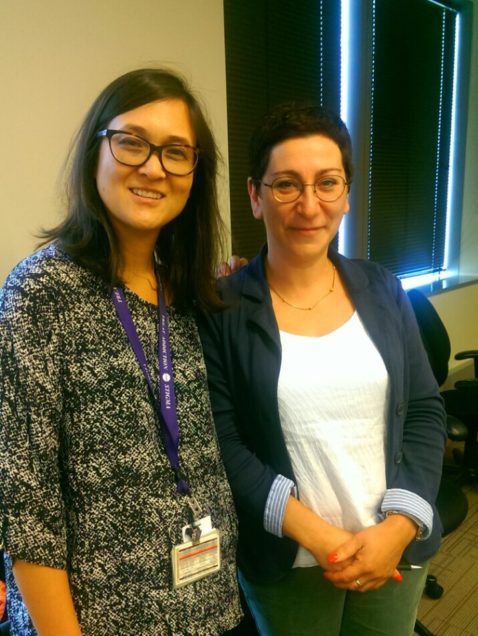URBAN ARCH Grows with Several New NIAAA-funded Studies
URBAN ARCH Grows with Several New
NIAAA-funded Studies
In this edition of the URBAN ARCH Newsletter we will highlight five grants that were awarded to URBAN ARCH investigators by NIAAA this fall. These studies will extend the scope of our HIV/alcohol research and allow for new work examining comorbidities such as pain, cardiovascular disease, and Tuberculosis (TB) that are common among people living with HIV (PLWH). Each of the three URBAN ARCH Cohorts were awarded one or more grants led by existing PIs (Freiberg; Hahn; Samet) as well as PIs new to the consortium (Barve; Palfai; Tsui). These studies will advance URBAN ARCH’s mission to conduct interdisciplinary research aimed at understanding how alcohol use impacts people living with HIV and to develop interventions to reduce alcohol use as well as alcohol and HIV-related consequences in this population.
Two studies, one in Russia and one in Boston, were funded by the UH2/UH3 mechanism, which “supports the development of highly innovative, highly relevant and high priority HIV/AIDS and alcohol research.” The funding is divided into two phases, with the initial UH2 phase for investigating mechanisms that underlie increased HIV/alcohol-related comorbidity and mortality. The goal is to develop a new method or intervention that can be pilot tested in the UH3 phase. This translational approach funds innovative research that brings the understanding of pathophysiological mechanisms from the bench to the bedside to improve clinical practice.
INTERNET-BASED VIDEO-CONFERENCING TO ADDRESS ALCOHOL USE AND PAIN AMONG HEAVY DRINKERS IN HIV-CARE
PI/cohort: Dr. Tibor Palfai, Professor of Psychology, Boston University is partnering with the Boston ARCH Cohort team on a UH2/UH3 to develop and evaluate a video telehealth approach to address alcohol use and pain for patients in an HIV-care setting. A subset of Boston ARCH participants will be asked to participate in this study.
Background and aims: Chronic pain and heavy drinking are common co-occurring conditions among PLWH each of which have a negative impact on daily functioning and HIV-related outcomes. Through expert consultation and feedback, qualitative analyses of patient interviews, and an open pilot trial, the first phase of this project will adapt an integrated alcohol-pain behavioral intervention to PLWH. In the UH3 phase Dr. Palfai will test the efficacy of the integrated behavioral video telehealth intervention for heavy drinking PLWH with chronic pain. Through a pilot randomized controlled trial, effect size estimates for the efficacy of the intervention will be determined from comparisons of the intervention condition with the control condition at 3 month and 6 month outcomes.
- reduction of standard number of drinks per week
- reduction in heavy drinking days
- reduction of chronic pain severity and interference
- ratings of patient satisfaction with treatment
- rate of treatment adherence
UH3 primary outcomes:
- number of drinks per week
- pain severity ratings
“In collaboration with investigators from the Boston ARCH Cohort study, this project seeks to develop and test an integrated behavioral approach delivered via internet-based videoconferencing to address chronic pain and heavy drinking.”
– Dr. Tibor Palfai
PI/cohort: Dr. Judith Tsui, Associate Professor of Medicine, University of Washington is partnering with the Russia cohort team on a UH2/UH3 study as a multiple PI with Jeffrey Samet. The team will test novel pharmacotherapies (opioid receptor antagonists) to improve chronic pain among HIV-infected heavy drinkers in St. Petersburg, Russia. A subset of Russia ARCH participants will be asked to participate in this study.
 Background and aims: Pain is a universal health concern impacting an array of important health outcomes that promises to be a growing issue for HIV-infected patients, particularly those with alcohol use disorders. Non-addicting therapies for chronic pain among persons with HIV are insufficient, and there is a compelling need for therapies that can simultaneously treat chronic pain and alcohol use disorders which frequently co-occur. In the initial UH2 phase the aim is to assess the feasibility, tolerability and safety of using opioid receptor antagonists (low-dose naltrexone and nalmefene) to treat pain among HIV-infected persons with heavy alcohol use and chronic pain. In the UH3 phase the team will conduct a 3-arm pilot randomized, double-blinded, placebo-controlled study of low-dose naltrexone vs. nalmefene vs. placebo among HIV-infected persons with heavy alcohol use and chronic pain.
Background and aims: Pain is a universal health concern impacting an array of important health outcomes that promises to be a growing issue for HIV-infected patients, particularly those with alcohol use disorders. Non-addicting therapies for chronic pain among persons with HIV are insufficient, and there is a compelling need for therapies that can simultaneously treat chronic pain and alcohol use disorders which frequently co-occur. In the initial UH2 phase the aim is to assess the feasibility, tolerability and safety of using opioid receptor antagonists (low-dose naltrexone and nalmefene) to treat pain among HIV-infected persons with heavy alcohol use and chronic pain. In the UH3 phase the team will conduct a 3-arm pilot randomized, double-blinded, placebo-controlled study of low-dose naltrexone vs. nalmefene vs. placebo among HIV-infected persons with heavy alcohol use and chronic pain.
UH3 outcomes:
To provide estimates of the interventions’ effects on
- pain (both self-reported and experimental/cold pressor test
- inflammation (i.e., levels of inflammatory cytokines IL-6 and TNF-α)
- measures of HIV control (CD4 count and viral load)
“I am excited to build upon prior collaborations with our Russian colleagues to pilot the use of opioid-receptor antagonists for chronic pain among HIV-infected patients. As clinicians, we desperately need additional therapies to treat chronic pain, and having medications that would also impact substance use and HIV progression would be ideal: opioid receptor antagonists are an intriguing possibility.”
– Dr. Judith Tsui
Two larger studies from the Russia and Uganda Cohorts were funded by collaborative U01s intended to support HIV/alcohol research and associated comorbidities in which two or more sites are needed.
1/2 ALCOHOL ASSOCIATED COMORBIDITIES AND MICROBIOME EVALUATION IN HIV (ACME HIV)
PI/cohort: Dr. Shirish Barve, Professor of Medicine, University of Louisville Washington is partnering with the Russia cohort team on a U01 grant as a multiple PI with Matthew Freiberg. The Alcohol Associated Comorbidities and Microbiome Evaluation in HIV study (ACME) will enroll 200 participants from the St PETER HIV trial to examine the effects of alcohol consumption on bacteria present in the gut. The ACME study team is partnering with Dr. Robert Cook, Professor of Epidemiology, University of Florida who will lead a similar study in Florida. All microbiome testing will be conducted in Dr. Barve’s lab and data from both cohorts will be combined in analyses.
Matthew Freiberg. The Alcohol Associated Comorbidities and Microbiome Evaluation in HIV study (ACME) will enroll 200 participants from the St PETER HIV trial to examine the effects of alcohol consumption on bacteria present in the gut. The ACME study team is partnering with Dr. Robert Cook, Professor of Epidemiology, University of Florida who will lead a similar study in Florida. All microbiome testing will be conducted in Dr. Barve’s lab and data from both cohorts will be combined in analyses.
Background and aims: Alcohol-related changes in the GI tract microbiome—termed dysbiosis—are central to pro-inflammatory cascade and could serve as novel therapeutic targets for reducing CVD risk among HIV+ heavy drinkers. The specific aims of ACME are as follows: to assess longitudinal qualitative and quantitative changes in the gut microbiome (dysbiosis) associated with very heavy alcohol consumption; to determine the effect of dysbiosis on intestinal permeability, microbial translocation, inflammation, and TMAO levels; to investigate the impact of dysbiosis on biomarkers for and echo measures of cardiac structure and function.
ACME observations:
- biomarker levels of intestinal permeability (e.g., intestinal fatty acid binding protein (IFABP), MT (e.g., endotoxin), inflammation (interleukin 6) and TMAO
PI/cohort: Dr. Judy Hahn and the Uganda Cohort received funding for a U01 to examine an intervention to reduce alcohol use and increase adherence to TB preventative therapy among HIV/TB co-infected drinkers. This study will be partnered with another U01 grant that will examine the same intervention in another Uganda cohort with Dr. Gabriel Chamie, Associate Professor, UCSF School of Medicine as the PI.
Background and aims: Tuberculosis (TB) is the leading cause of death among persons living with HIV in sub-Saharan Africa. Heavy alcohol use is also common among HIV-infected persons, and people who use alcohol are at higher risk of TB than those who do not use alcohol. However, in sub-Saharan Africa, because both alcohol and the anti-TB antibiotic isoniazid (INH) can be toxic to the liver, heavy alcohol users are not offered INH, although INH has been shown prevent TB and death in persons with HIV. To address this challenge, this randomized 2×2 factorial trial of 800 HIV-infected adult heavy drinkers will aim to do the following: determine whether economic incentives contingent on reduced alcohol use assessed by point of care EtG tests conducted at INH refill visits reduces heavy alcohol use over six months of IPT compared to the control; determine whether economic incentives contingent on INH positive point of care urine tests at these visits compared to the control increases IPT adherence over six months; examine the longer-term impact of the intervention on HIV virologic suppression, and examine mediators of an effect.
DIPT primary outcomes:
- self-reported heavy alcohol use
- INH Adherence
“The newly funded DIPT studies (PIs J. Hahn and G. Chamie) will together break new ground by testing a novel incentive strategy for reducing alcohol use and improving INH preventive therapy adherence for tuberculosis (TB), for greater INH completion with reduced toxicity. The strategy will leverage exciting new point of care technologies — urine testing for 2-3 day alcohol exposure and INH pill taking — and brings together the fields of contingency management and incentive-based interventions to develop new ways to prevent a key HIV/alcohol co-morbidity, i.e. TB.”
– Dr. Judith Hahn.
And finally, Drs. Samet and Freiberg received an NIAAA R01 that was jointly funded by the Russian Foundation for Basic Research as part of the U.S.-Russia Bilateral Collaborative Research Partnerships initiative. This mechanism is intended to foster collaborations between researchers in the United States and Russia to conduct high quality HIV/AIDS research that can be applied in both countries.
St. PETER HIV-ALCOHOL, PROTEIN BIOMARKERS AND CARDIOVASCULAR DISEASE RISK
PI/cohort: Drs. Freiberg and Samet will lead the Russia Cohort team, with major collaboration from Dr. Kaku So-Armah, on an R01 study examining the relationship between Trimethylamine N-oxide (TMAO) production and cardiovascular disease, using participants of the St PETER HIV trial.
Background and aims: Among people living with HIV, heavy alcohol use is common and increases the risk of heart disease. As HIV care improves, patients can lose more years of life to alcohol-related end-organ disease like heart failure than to HIV itself. This observational study seeks to understand how alcohol increases heart failure risk in HIV+ heavy drinkers by using complementary resources/infrastructure of the St. PETER HIV clinical trial. The specific aims are as follows: to assess whether heavier alcohol use (Alcohol Use Disorders Identification Test, AUDIT≥20) is: a) cross-sectionally and b) longitudinally associated with TMAO levels among 400 HIV+ heavy drinkers; to assess whether TMAO is associated with cardiac function and BNP in this population; to explore whether TMAO mediates the association of alcohol use and subclinical HF risk.
Outcomes:
- self-reported heavy alcohol use
- TMAO level
- Echocardiography
- B-type natriuretic peptide (BNP; biomarker of ventricular stretching)
- Phosphatidylethanol (PEth; alcohol biomarker)
- self-reported food frequency
“I am excited about this study for several reasons but I will name three. First, it is investigating the intersection between conditions of public health importance: HIV, substance use, and cardiovascular disease. Second, it is doing so in a multidisciplinary way bringing together addiction medicine, epidemiology, microbiology, and cardiology. Third, it is forward-looking in the collection of longitudinal fecal samples for future analyses of microbial populations and their role in the HIV, substance use and cardiovascular disease story.”
– Kaku So-Armah, Research Assistant Professor, Boston University School of Medicine and co-investigator on this study


